#Cloud ERP Size
Explore tagged Tumblr posts
Text
The Growing Market for Cloud ERP: Key Trends and Opportunities
The Cloud ERP Market is expected to grow from USD 44.6 billion in 2023-e at a CAGR of 11.2% to touch USD 93.8 billion by 2030. Cloud ERP refers to a suite of integrated applications hosted in the cloud that allow organizations to manage core business functions, including finance, supply chain, human resources, and customer relationship management. Unlike traditional ERP systems, which are installed and maintained on a company's physical servers, cloud ERP is hosted on the vendor's servers and accessed via the internet.
This model offers numerous advantages, including:
Lower Upfront Costs: Cloud ERP reduces the need for heavy upfront investment in hardware and IT infrastructure.
Faster Implementation: Deploying cloud ERP systems is typically faster and less complex than on-premise solutions.
Scalability: As business needs grow or change, cloud ERP platforms can easily scale without requiring significant changes to infrastructure.
Automatic Updates: Cloud ERP providers often deliver automatic updates, ensuring businesses always have access to the latest features and security protocols.
Accessibility: Cloud ERP allows employees to access the system from anywhere, enhancing remote work capabilities.
Read More about Sample Report: https://intentmarketresearch.com/request-sample/cloud-erp-market-3028.html
These benefits have led to an increasing adoption of cloud ERP systems, particularly among small and medium-sized enterprises (SMEs), which may not have the resources to manage complex on-premise ERP solutions.
Key Trends Driving Cloud ERP Market Growth
Several trends are contributing to the rapid expansion of the cloud ERP market:
Increased Demand for Remote Work Capabilities The COVID-19 pandemic has accelerated the demand for remote work solutions, with businesses seeking tools that enable collaboration and productivity from any location. Cloud ERP systems provide the flexibility to manage business processes remotely, making them a vital component of modern business strategies.
Digital Transformation Initiatives Organizations across industries are embracing digital transformation to stay competitive. Cloud ERP systems are at the heart of this transformation, providing a unified platform for integrating advanced technologies such as artificial intelligence (AI), machine learning (ML), and big data analytics. These technologies enable predictive decision-making, process automation, and enhanced operational efficiency.
Shift Towards Industry-Specific Solutions Vendors are increasingly offering industry-specific cloud ERP solutions tailored to the unique needs of sectors such as manufacturing, retail, healthcare, and finance. This specialization allows businesses to deploy ERP systems that address their specific operational challenges and regulatory requirements.
Focus on Cybersecurity As more businesses move their operations to the cloud, cybersecurity has become a top priority. Cloud ERP providers are enhancing their security features, including encryption, multi-factor authentication, and regular security audits, to ensure data integrity and compliance with global regulations.
SME Adoption Cloud ERP systems are particularly attractive to SMEs, which often lack the resources to implement and maintain complex on-premise ERP solutions. The subscription-based pricing model of cloud ERP allows smaller businesses to access enterprise-level technology without significant upfront costs.
Market Outlook and Opportunities
The global cloud ERP market is projected to experience significant growth in the coming years, with analysts predicting a compound annual growth rate (CAGR) of over 10% between 2023 and 2028. North America currently dominates the market, but regions such as Asia-Pacific and Europe are expected to see accelerated adoption due to increasing digitalization and government initiatives to support cloud adoption.
Industries such as manufacturing, retail, and healthcare are expected to be key drivers of this growth, as businesses in these sectors seek to optimize their operations, improve supply chain visibility, and enhance customer experiences.
Ask for Customization Report: https://intentmarketresearch.com/ask-for-customization/cloud-erp-market-3028.html
Challenges to Consider
Despite its numerous benefits, cloud ERP adoption is not without challenges. Some of the common concerns include:
Data Privacy and Compliance: Organizations operating in highly regulated industries must ensure their cloud ERP systems comply with strict data privacy laws and regulations, such as GDPR in Europe and HIPAA in the U.S.
Integration with Legacy Systems: For businesses with existing legacy systems, integrating cloud ERP can be complex and time-consuming.
Change Management: Implementing cloud ERP requires significant changes to business processes and employee workflows, which can be met with resistance if not properly managed.
Conclusion
The cloud ERP market is poised for robust growth as businesses increasingly recognize the value of modernizing their operations with cloud-based solutions. With trends such as remote work, digital transformation, and industry-specific solutions driving demand, organizations have a unique opportunity to capitalize on the benefits of cloud ERP. However, businesses must carefully consider their specific needs, regulatory requirements, and change management strategies to ensure a successful ERP implementation.
0 notes
Text
How can ERP Software Improve Collaboration Across Distributed Teams
Businesses today are incorporating cloud-based ERP software to cope with such challenges and maintain communication and collaboration seamlessly despite geographical separation. Our cloud-based ERP software in India often integrates communication tools like instant messaging, task management features, and discussion boards. In this blog, we have mentioned multiple collaborative edges of cloud-ERP solutions with teams.
#cloud based erp software Ahmedabad#cloud-based erp software in india#cloud based accounting software for small business#cloud based accounting software for medium sized business
0 notes
Text
Cloud ERP Market: Examined in New Market Research
Cloud ERP Market concentrate by "The Insight Partners" gives insights regarding the market elements influencing the market, Market scope, Market division and overlays shadow upon the main market players featuring the positive serious scene and patterns beating the years.
A restrictive Cloud ERP statistical surveying report gives profundity investigation of the market elements across five areas like North America, Europe, South America, Asia-Pacific, Center East and Africa. The division of the market by type, application, and district was done in light of the careful market examination and approval through broad essential contributions from industry specialists, key assessment heads of organizations, and partners) and optional exploration (worldwide/local affiliations, exchange diaries, specialized white papers, organization's site, yearly report SEC recording, and paid data sets). Further, the market has been assessed by using different examination procedures and inward measurable model.
Cloud ERP market report likewise give a careful comprehension of the state-of-the-art cutthroat examination of the developing business sector patterns alongside the drivers, limitations, difficulties, and open doors in the Cloud ERP market to offer beneficial experiences and momentum situation for pursuing ideal choice. The report covers the unmistakable players in the market with point by point SWOT examination, monetary outline, and key advancements of the items/administrations from the beyond three years. Besides, the report likewise offers a 360º viewpoint of the market through the serious scene of the worldwide business player and assists the organizations with earning Cloud ERP market income by understanding the essential development draws near.
Driving Cloud ERP market Players:
1. Acumatica, Inc.
2. Infor
3. Microsoft
4. Oracle
5. PLEX Frameworks
6. Ramco Frameworks
7. Sage Programming Arrangements Pvt Ltd
8. SAP
9. Unit4
10. Workday, Inc.
Cloud ERP market - Worldwide Examination to 2030 is a selective and inside and out concentrate on which gives a complete perspective available incorporates the latest thing and future sufficiency of the market regarding the items/administrations. The report gives an outline of the Cloud ERP market with the point by point division by type, application, and locale through top to bottom footing investigation of the in general augmented simulation industry. This report gives qualified research available to assess the central members by aligning every one of the significant items/administrations to comprehend the situating of the key part in Cloud ERP market.
The report is a mix of subjective and quantitative examination of the computer generated simulation industry. The worldwide market significantly thinks about five significant areas, in particular, North America, Europe, Asia-Pacific (APAC), Center East and Africa (MEA) and South and Focal America (SACM). The report likewise centers around the thorough Irritation investigation and broad market elements during the gauge time frame.
Motivation to Purchase
• Save and decrease time doing section level examination by recognizing the development, size, driving players and portions in the worldwide Cloud ERP market.
• Features key business needs to direct the organizations to change their business procedures and lay down a good foundation for themselves in the wide geology.
• The critical discoveries and suggestions feature vital moderate industry patterns in the Cloud ERP market, subsequently permitting players to foster powerful long haul procedures to accumulate their market income.
• Create/adjust business extension plans by utilizing significant development offering created and developing business sectors.
• Examine inside and out worldwide market patterns and viewpoint combined with the variables driving the market, as well as those controlling the development at a specific degree.
• Improve the dynamic cycle by understanding the techniques that support business interest concerning items, division and industry verticals.
Gratitude for perusing this article; you can likewise redo this report to get select sections or area wise inclusion with districts like Asia, North America, and Europe.
#Cloud ERP Market#Cloud ERP Market Size#Cloud ERP Market Trends#Cloud ERP Market Forecast#Cloud ERP Market Growth#Cloud ERP Market Analysis
0 notes
Text
Cloud-based ERP and Business- Right Time to Migrate is Now
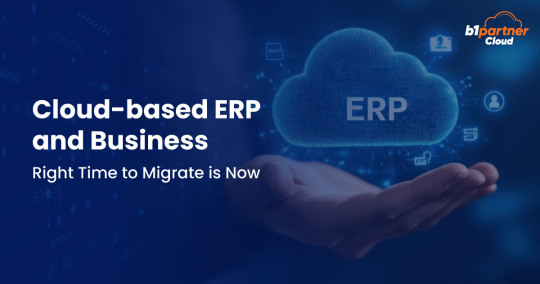
Many businesses rely on SAP Business One (SAP B1) to optimize their workflows and increase operational efficiency. However, small and medium-sized businesses (SMBs) with diverse business models require more advanced solutions to stay competitive in today’s fast-paced environment. Cloud technology can address this need, and the SAP Business One Cloud solution offers numerous benefits, giving businesses an edge over competitors.
In this article, we will explore the importance of cloud-based SAP Business One and key factors to consider before migrating your existing SAP B1 to the cloud. Let's begin by understanding the concept of cloud-based ERP.
Importance of Moving On-Premise SAP B1 to the Cloud
A cloud-powered ERP solution differs from an on-premise one in that it doesn’t require any hardware or software installation. As a managed cloud solution, it provides seamless access from anywhere, anytime, as long as there is an internet connection. SAP Business One Cloud is an example of such a cloud ERP solution.
In today’s environment, where digital transformation is key to success, transitioning to a cloud-based solution is a strategic decision for businesses. Migrating your on-premise SAP B1 to the cloud offers benefits such as scalability, agility, and flexibility, all at a lower cost.
For many SMBs and startups, this cloud-based solution helps reduce costs and enhances productivity through the power of cloud technology. However, it's essential to consider several factors during SAP Business One Cloud migration to fully leverage these benefits. Let’s look at these factors before outlining the step-by-step guide for migrating your SAP B1 system to the cloud.
Key Considerations Before Migrating to SAP Business One Cloud
SAP Business One Cloud can provide significant advantages for forward-looking SMEs. However, migrating your existing SAP B1 to the cloud is a complex process with many factors to consider. When deciding to migrate to SAP Business One Cloud, keep the following factors in mind:
1. Cost of Ownership
This is one of the most crucial factors, whether you're deploying SAP B1 to the cloud or migrating your current ERP. Cloud-based SAP Business One requires monthly subscription fees for access to licenses. However, this cost is much lower than that of on-premise solutions, which demand expensive in-house infrastructure and continuous maintenance.
2. Implementation Time
Implementing an on-premise SAP Business One ERP can take anywhere from 3 to 6 months. Many small and mid-sized businesses find this process cumbersome and time-consuming. Cloud migration is generally quicker and more efficient. A trusted managed cloud services provider can handle the migration process with minimal disruption and in less time.
3. Collaboration and Accessibility
With remote or hybrid working becoming the norm post-pandemic, it’s essential to ensure the cloud-based ERP is easily accessible for remote teams. The SAP B1 Cloud should be available to users anywhere, via the internet. Additionally, it should support seamless collaboration between different teams, no matter their location.
4. Reliability of Provider
The reliability of your cloud service provider is a critical factor. Many cloud providers offer cloud migration services, but it’s vital to choose a trusted and reputable one. Understand the terms of maintenance, upgrades, and technical support to ensure minimal disruptions during your SAP B1 migration to the cloud.
Step-by-Step Guide to Migrate Your Existing SAP B1 to the Cloud
SAP Business One Cloud is a popular solution for small and mid-sized businesses. Regardless of the industry, businesses can benefit from a cloud-based ERP solution by migrating their on-premise SAP B1. Here’s a step-by-step guide to completing the migration process effectively:
Step 1: Assess Existing Environment
Before initiating the migration, it’s crucial to evaluate your current setup and business needs. Examine dependencies, customizations, goals, and integrations with the help of a cloud service provider. This will help you identify potential challenges and ensure a smooth transition from on-premise to the cloud.
Step 2: Choose the Right Plan
Managed cloud providers offer various plans to meet different business needs. You’ll need to select a plan that aligns with your company’s size, goals, and performance requirements. Consider factors such as data storage, scalability, and processing power when choosing a package.
Step 3: Backup and Data Storage
During the migration process, protecting corporate data is vital. Make sure to back up your on-premise SAP B1 data to prevent any data loss or corruption during the migration. Using advanced migration tools can help ensure a seamless transfer and minimize downtime while maintaining data integrity.
Step 4: Application and Database Migration
The next step is migrating your SAP Business One application and databases to the cloud server. A technical team from your cloud service provider can assist in ensuring a secure and efficient migration. Once the transfer is complete, validate the functionality of your SAP B1 application in the new cloud environment.
Step 5: Integration and Performance Testing
Thoroughly test all integrations with other business applications and processes to ensure seamless connectivity in the cloud-driven environment. Extensive testing will help identify and resolve compatibility issues, ensuring uninterrupted workflows and synchronized data.
Step 6: User Training and Adoption
Prepare your team for the transition by providing comprehensive training on the new cloud-based environment. This will help users familiarize themselves with the enhanced features, accessibility, and collaboration tools available in the cloud.
Step 7: Go Live and Monitoring
Coordinate with your cloud provider’s support team to finalize the process and go live. Implement robust monitoring tools to track system performance, identify issues, and ensure the continued optimization of your SAP Business One application in the cloud.
By following these steps, you can ensure that your migration process is successful, allowing your business to unlock the full potential of a cloud-based SAP B1 solution.
Conclusion
Migrating your existing SAP Business One on-premise solution to the cloud can be a complex process, but with the right strategy and approach, it can bring substantial benefits to your business. By following the step-by-step guide and considering key factors during the migration, you can ensure a smooth transition and a successful cloud implementation. The right cloud partner will help you minimize downtime and safeguard your data, unlocking new possibilities with SAP B1 Cloud.
B1 Partner Cloud is a trusted SAP solutions provider, offering a full range of services from implementation to maintenance, upgrades, and cloud migration. Contact us today to learn more about how we can assist with your SAP Business One cloud migration.
Source - https://www.b1partner.cloud/cloud-based-erp-and-business-right-time-to-migrate-is-now/
2 notes
·
View notes
Text
Top ERP Software Trends in 2024 – What to Expect
The Enterprise Resource Planning (ERP) software market is evolving at an unprecedented pace, driven by advancements in technology and the growing needs of businesses across industries. In 2024, ERP software will continue to serve as a backbone for businesses, streamlining operations, enhancing productivity, and enabling informed decision-making. As we move further into the digital age, several trends are emerging that will reshape the ERP landscape. This blog will explore the top ERP software trends to watch in 2024, with a focus on the importance of ERP systems for engineering companies, particularly in India, where the demand for industry-specific solutions is rapidly growing.
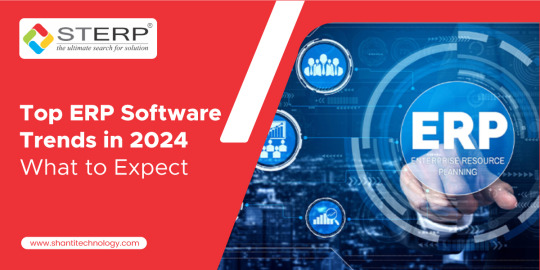
1. AI and Machine Learning Integration in ERP Software
One of the biggest trends for ERP software in 2024 is the integration of artificial intelligence (AI) and machine learning (ML). AI-driven automation will continue to enhance business processes, helping companies improve efficiency, reduce errors, and make more informed decisions. Machine learning algorithms will enable ERP systems to predict trends, forecast demand, and offer personalized insights.
For engineering companies in India, AI and ML integration in ERP systems will play a vital role in predictive maintenance, optimizing inventory management, and reducing operational costs. These features will allow engineering firms to focus on innovation while leaving repetitive and data-driven tasks to automated systems.
2. Cloud-Based ERP Solutions
Cloud-based ERP systems have been gaining traction in recent years, and this trend is expected to dominate 2024. Cloud ERP offers scalability, flexibility, and cost-effectiveness, making it an ideal solution for companies of all sizes. The ability to access real-time data from anywhere in the world provides businesses with a competitive edge, allowing for quicker decision-making and improved collaboration.
For engineering companies, adopting a cloud-based ERP software solution can streamline operations by centralizing data and ensuring that teams, whether on-site or off-site, are working with up-to-date information. This is particularly relevant for engineering companies in India, where geographically dispersed teams often need access to critical project data in real-time.
3. ERP Customization and Industry-Specific Solutions
While generic ERP solutions have been widely adopted, there is a growing demand for industry-specific ERP software that caters to the unique needs of different sectors. In 2024, customization will become a crucial factor in ERP implementation, with businesses seeking solutions tailored to their specific operational requirements.
For engineering companies, this means selecting ERP software designed to handle the complexities of engineering projects, such as project management, materials tracking, and compliance with industry regulations. The rise of specialized ERP providers, particularly ERP software for engineering companies, will make it easier for businesses to choose solutions that are perfectly aligned with their needs.
ERP software providers in India are increasingly offering industry-specific solutions, and some of the Top 10 ERP software providers in India are focusing on engineering ERP systems that address these niche requirements. As customization becomes more accessible, businesses will be able to implement ERP solutions that closely match their workflows.
4. Mobile ERP Functionality
Mobile technology is becoming an integral part of modern business, and ERP systems are no exception. In 2024, ERP software will continue to expand its mobile capabilities, enabling businesses to access critical information on the go. Mobile ERP solutions allow employees to access data, manage tasks, and approve workflows from their smartphones or tablets, providing flexibility and improving productivity.
For engineering ERP software companies in India, mobile ERP functionality is particularly valuable for teams working on-site or at multiple locations. Field engineers can access project data, submit reports, and update tasks in real-time, reducing delays and enhancing collaboration between teams.
5. Advanced Data Analytics and Business Intelligence
The rise of big data has prompted ERP systems to evolve into powerful data analytics and business intelligence tools. In 2024, ERP software will focus on enhancing data-driven decision-making by offering advanced analytics and reporting features. These capabilities will help companies make more informed decisions, identify trends, and uncover hidden opportunities for growth.
Engineering companies, which often deal with complex projects and large amounts of data, can benefit from the enhanced data analytics features of modern ERP systems. ERP software for engineering companies in India will increasingly provide detailed reports on project performance, cost analysis, and resource allocation, helping managers optimize operations and ensure timely project delivery.
6. ERP and IoT Integration
The Internet of Things (IoT) is another technology that is transforming the ERP landscape. In 2024, ERP systems will increasingly integrate with IoT devices, enabling companies to collect real-time data from connected devices, sensors, and machinery. This integration will provide businesses with valuable insights into their operations, from tracking inventory levels to monitoring equipment performance.
For engineering companies, IoT integration can help with real-time tracking of machinery, improving maintenance schedules, and reducing downtime. In India, where engineering firms are becoming more reliant on IoT devices, ERP software providers in India are recognizing the need to offer solutions that seamlessly connect IoT data with ERP systems.
7. Focus on Cybersecurity
With the increasing digitization of business operations, the importance of cybersecurity in ERP systems cannot be overstated. In 2024, ERP providers will place a stronger emphasis on ensuring the security of sensitive business data. Companies will expect robust cybersecurity measures such as encryption, multi-factor authentication, and regular security updates to protect their systems from potential breaches.
This is particularly crucial for engineering companies, which often handle sensitive data related to intellectual property, designs, and project specifications. ERP software for engineering companies must prioritize data protection to safeguard against cyber threats.
8. Sustainability and Green ERP
Sustainability is no longer just a buzzword; it’s a business imperative. In 2024, we will see a growing number of businesses turning to ERP software to help them meet their sustainability goals. Green ERP systems will focus on reducing waste, optimizing resource usage, and tracking a company’s carbon footprint.
Engineering ERP software companies in India are beginning to incorporate sustainability metrics into their offerings, allowing engineering firms to track energy consumption, reduce waste, and ensure compliance with environmental regulations. As industries become more environmentally conscious, ERP software that supports sustainability initiatives will become a valuable asset.
9. Best ERP Software Providers in India
With the growing demand for ERP solutions tailored to specific industries, businesses are looking for the best ERP software provider in India to meet their needs. ERP software providers in India are offering a wide range of solutions, from generic systems to industry-specific software like engineering ERP solutions.
Among the Top 10 ERP software providers in India, companies are competing to offer the most advanced, user-friendly, and customizable solutions. These providers understand the unique challenges of industries like engineering and are developing software that addresses the specific requirements of managing large-scale projects, resources, and compliance.
10. ERP Software for Engineering Companies in India
Engineering companies in India are increasingly recognizing the value of ERP software in streamlining operations, improving project management, and enhancing overall efficiency. In 2024, ERP software for engineering companies in India will focus on providing robust solutions that can handle the complexities of engineering projects, from managing resources to tracking project timelines and ensuring compliance with industry standards.
The right ERP software provider can make a significant difference for engineering firms, helping them optimize workflows, reduce costs, and improve profitability. As the demand for specialized ERP systems grows, engineering ERP software companies in India will continue to innovate, offering tailored solutions to meet the evolving needs of the industry.
Conclusion
As we look ahead to 2024, the ERP software landscape is set to undergo significant changes, driven by technological advancements and the growing need for industry-specific solutions. For engineering companies in India, adopting the right ERP system will be crucial in staying competitive and efficient in an increasingly complex business environment. Whether it is integrating AI, leveraging IoT data, or enhancing cybersecurity, ERP software providers in India are poised to meet the demands of modern businesses with cutting-edge solutions.
#ERP software Companies in Pune#Top 10 ERP software providers in India#ERP software for engineering companies#ERP software for engineering companies in India#Rajasthan#Madhya Pradesh#Maharashtra#Gujarat
5 notes
·
View notes
Text
House Envy? Is house envy a thing? We think so. Check out one of our recent web development projects with the award winning Poppy Developments in Devon. Simon and the team at Poppy Developments are creating amazing and unique homes in the South West of the UK. The Cove, a selection of 2, 3 and 4 bedroom homes is Poppy Developments next project. Saint IT provides IT Solutions for the small and medium enterprise. We create and re-launch websites that attract customers and help your business succeed Our company principal of customer first drives our determination to understand the business of our customers and how IT can solve challenges and support future growth. We equally understand that our customers need a cost-effective solution appropriate for the size of business. Saint IT believes that we can achieve these results for you. Saint IT offers the SME's across the UK services for; Managed IT Services IT ConsultancyCustomer Relationship Management (CRM) Enterprise Resource Planning (ERP) Microsoft 365 solutions and support Web design and hosting Multi and hybrid cloud computing Hardware provisioning Network and telephony systems and support Remote working and bring your own device (BYOD) Business continuity services Requirements management and system design Project planning and delivery We are a proud supporter of local charities and NFP organisations. www.saint-it.co.uk www.poppydevelopments #saintit #poppydevelopments #web #webdevelopment #webdesign #architecture #construction #cloud #startup
2 notes
·
View notes
Text
What is the best IFRS software
Best International Financial Reporting Standards (IFRS) software because the choice of software depends on the specific needs and requirements of the organization. Different companies may have distinct preferences based on factors such as size, industry, complexity of financial reporting, and integration capabilities with existing systems.
However, there are several reputable software solutions that are commonly used for IFRS reporting and compliance. Keep in mind that the landscape might have changed, and new solutions may have emerged since my last update.
Workiva:
Workiva offers cloud-based solutions for finance, compliance, and data management. It is known for its collaborative and workflow management features.
Tagetik (owned by Wolters Kluwer):
Tagetik provides a unified platform for financial performance management, including IFRS reporting. It is designed to streamline funds processes and improve compliance.
Oracle Financial Services Analytical Applications (OFSAA):
Oracle's OFSAA suite includes modules for various budgetary functions, including regulatory info. It is designed to help wealthy institutions comply with IFRS and other reporting standards.
SAP S/4HANA:
SAP's ERP solution, S/4HANA, includes financial modules that can support IFRS. SAP is widely used in large enterprises across various industries.
Datar ails:
Data Rails offers a platform that automates funds reporting, budgeting, and forecasting. It is designed to improve the accuracy and efficiency of income processes.
Hubble (by insight software):
Hubble is an integrated suite of performance management apps. It provides solutions for financial reporting, analytics, and planning.
OneStream Software:
OneStream offers a unified CPM (Corporate Performance Management) platform that includes solutions for financial consolidation and planning, supporting IFRS compliance.
When choosing an IFRS software solution, it's essential to consider factors such as the organization's specific information needs, budget, scalability, ease of use, and integration capabilities with existing systems. Additionally, staying informed about updates and reviews in the financial software market is crucial to ensuring that the chosen solution meets the latest standards and regulations.
2 notes
·
View notes
Text
The Top Choice: Oracle Enterprise Resource Planning Cloud Service for Your Business Success
Are you searching for the best solution to streamline your business operations? Look no further than the Top Choice: Oracle Enterprise Resource Planning (ERP) Cloud Service. In today's fast-paced business world, organizations need a robust ERP solution to optimize their processes, enhance productivity, and drive growth. Oracle ERP Cloud Service, crowned as the best in the industry, offers a comprehensive suite of tools designed to meet the demands of modern businesses.
Why Choose the Best: Oracle Enterprise Resource Planning Cloud Service?
Oracle ERP Cloud Service stands out as the Best Option for businesses across various industries. Here's why:
Scalability: Easily scale your ERP system as your business grows, always ensuring seamless operations.
Integration: Integrate ERP with other Oracle Cloud services for a unified business platform.
Real-time Insights: Gain valuable insights into your business with real-time analytics, enabling data-driven decision-making.
Security: Rest easy knowing your data is secure with Oracle's advanced security features.
Frequently Asked Questions about the Best Choice: Oracle ERP Cloud Service
Q1: What modules are included in Oracle ERP Cloud Service?
A1: Oracle ERP Cloud Service includes modules for financial management, procurement, project management, supply chain management, and more. Each module is designed to optimize specific aspects of your business.
Q2: Is Oracle ERP Cloud Service suitable for small businesses?
A2: Yes, Oracle ERP Cloud Service is scalable and can be tailored to meet the needs of small, medium, and large businesses. It offers flexible solutions suitable for businesses of all sizes.
Q3: How does Oracle ERP Cloud Service enhance collaboration among teams?
A3: Oracle ERP Cloud Service provides collaborative tools that enable teams to work together seamlessly. Features like shared calendars, document management, and task tracking enhance communication and collaboration.
Conclusion: Empower Your Business with the Best ERP Solution
Oracle Enterprise Resource Planning Cloud Service is not just a choice; it's the Ultimate Solution for businesses seeking to optimize their operations. By harnessing the power of Oracle ERP, you can streamline processes, improve efficiency, and drive innovation. Don't let outdated systems hold your business back. Embrace the future with Oracle ERP Cloud Service and propel your business to new heights.
Ready to transform your business? Contact us today to explore the endless possibilities with the best ERP solution on the market.
#oracle#oracle erp#rapidflow#oracle erp cloud service#best erp solution#oracle erp service providers#business#business automation#oracle services#enterprise software#scalability#integration#rpa#market#erp
3 notes
·
View notes
Text
Simplifying Tax Filing: The Best Accounting Software Solutions for Indian Companies
Tax filing can be a complex and time-consuming process for Indian companies. However, with the right accounting software, this task can be simplified and streamlined. In this article, we will explore the best accounting software solutions for Indian companies that can assist in simplifying tax filing.

1. Tally ERP 9: Tally ERP 9 is a leading accounting software widely used in India. It offers comprehensive features for managing financial transactions, generating accurate financial reports, and ensuring GST compliance. With built-in tax filing capabilities, Tally ERP 9 simplifies the process of tax computation and e-filing, saving time and reducing errors.
2. QuickBooks: QuickBooks is a popular accounting software that caters to small and medium-sized businesses in India. It provides features like expense tracking, invoicing, and financial reporting. QuickBooks simplifies tax filing by automatically categorizing transactions, generating GST-compliant reports, and facilitating seamless integration with tax filing portals.
3. Zoho Books: Zoho Books is a cloud-based accounting software that offers Indian businesses an efficient way to manage their finances. It provides GST-compliant invoicing, expense tracking, and bank reconciliation features. Zoho Books streamlines tax filing by generating accurate tax reports, providing support for e-way bill generation, and enabling integration with GSTN for seamless filing.
By leveraging these top accounting software solutions, Indian companies can simplify tax filing processes and ensure compliance with GST regulations. These software options automate various aspects of tax computation, generate GST-compliant reports, and facilitate easy e-filing. They minimize manual effort, reduce the chances of errors, and provide businesses with a clear overview of their tax obligations.
In conclusion, choosing the right accounting software is essential for Indian companies looking to simplify tax filing. Tally ERP 9, QuickBooks, and Zoho Books are among the top accounting software solutions that can streamline the tax filing process, saving businesses valuable time and effort while ensuring accuracy and compliance.
2 notes
·
View notes
Text
ERP Systems for Small and Medium-Sized Businesses in Saudi Arabia: What to Consider?
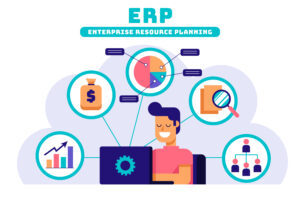
What Is an ERP System
ERP stands for “Enterprise Resource Planning” and refers to a type of software system that manages and integrates a range of business processes across an organization.
ERP systems provide a centralized database that can be accessed by different departments within an organization handling various business processes such as finance, procurement, production, inventory management, human resources, and customer relationship management. ERP systems integrate these processes to provide a comprehensive view of the entire organization and help to improve operational efficiency and decision-making.
Market Trend for ERP Systems
Research and Markets, the global market research firm, indicates that the ERP software market in Saudi Arabia would grow at a rate of around 17.4% between 2020 and 2025, primarily due to escalating demand for business process automation and the need for data-driven decisions. A robust ERP system is the best way forward for any business to succeed.
Features of ERP Systems
That said, let’s take a look at some of the key features of a good ERP system.
Integration of different business processes and departments
Centralized database with real-time data
Standardization of business processes
Automation of routine tasks
Reporting and analytics capabilities
User access controls to ensure data security
Scalability to support the growth of the organization
Key Considerations for Choosing the Best ERP Software
There are several popular ERP systems in Saudi Arabia such as Oracle ERP Cloud, SAP Business One, Microsoft Dynamics 365, Sage 300, Infor ERP, and Hal Business Success ERP. However, you need to pay attention to the following factors while choosing the best ERP software system that would meet your needs.ConsiderationDescriptionBusiness needsThe system should be able to support the business processes that need to be automated or streamlined ScalabilityThe ERP system should be able to support the future growth of the organizationIntegrationThe ERP system should be able to integrate seamlessly with the organization’s other business applications or systemsCustomizationIt should be possible to customize the ERP system to meet the specific needs of the organizationUser friendlinessThe ERP system should be easy to use and the required training and support should be available for usersSecurityThe system needs to have adequate security features including data encryption and user access controls
ERP systems are thus designed to benefit small and medium-sized businesses, manage their resources and improve efficiency through streamlined business processes, improved decision-making, enhanced visibility and better collaboration. These systems support growth and customer satisfaction and drive the businesses to scale greater heights.
Source Link : https://halsimplify.com/blog/erp-systems-for-small-and-medium-sized-businesses-in-saudi-arabia-what-to-consider/
2 notes
·
View notes
Text
Exploring the Top ERP Providers in India: Streamlining Business Operations
In today's fast-paced business environment, effective management of resources, streamlined processes, and data-driven decision-making is critical for sustainable growth. Enterprise Resource Planning (ERP) systems have emerged as powerful tools that integrate key business functions, enabling seamless collaboration and boosting overall productivity. India, with its vibrant business landscape, hosts a multitude of ERP providers offering comprehensive solutions. In this blog, we will delve into the top 11 ERP providers in India, exploring their key offerings, strengths, and how they empower businesses to achieve their goals.
Here Is The Top 11 ERP Providers
SAP India :
SAP, a global leader in enterprise software, has established itself as a frontrunner in the Indian ERP market. Renowned for its comprehensive suite of ERP solutions tailored for diverse industries, SAP offers modules covering finance, supply chain, human resources, customer relationship management, and more. With a strong focus on scalability, robustness, and the ability to handle complex business processes, SAP India provides reliable support, extensive training resources, and regular updates to help businesses stay ahead.

Oracle India :
Oracle, a prominent ERP provider, delivers integrated applications designed to streamline business operations. With modules spanning finance, procurement, manufacturing, sales, and customer service, Oracle ERP solutions cater to organizations of all sizes and industries. Its strength lies in handling large-scale enterprises, complex supply chains, and global operations. Oracle India boasts a robust customer base and offers comprehensive support, training, and implementation services to ensure successful ERP adoption.
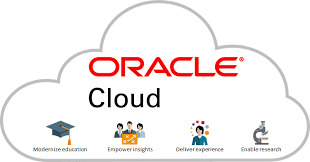
Microsoft Dynamics 365 :
Microsoft Dynamics 365 is a popular ERP provider offering a unified platform for finance, operations, sales, and customer service. With a user-friendly interface and seamless integration with other Microsoft products, Dynamics 365 simplifies processes and empowers businesses to make data-driven decisions. Its cloud-based nature allows scalability, flexibility, and easy accessibility. Microsoft provides extensive support, regular updates, and a vibrant user community, making the implementation and maintenance of Dynamics 365 a smooth experience
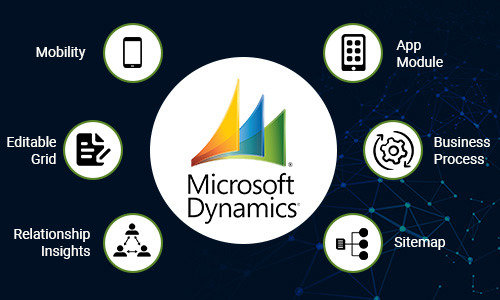
Quickensol it solutions QuickenSol IT Solutions emerges as a reliable ERP service provider, offering comprehensive solutions tailored to meet diverse business needs.QuickenSol IT Solutions empowers organizations through its robust ERP services, innovative technologies, and customer-centric approach. From seamless integration to enhanced data visibility, QuickenSol IT Solutions is dedicated to helping businesses achieve their growth objectives and stay ahead in a competitive market. quickensol offers a module covering finance, education, real estate, agriculture, laboratory, e-commerce, healthcare, insurance, logistics, construction industry, project management, and manufacturing. Quickensol offers strong customer support, an extensive knowledge base, and regular feature updates, making it a popular choice for Indian organizations seeking a reliable ERP solution.

Tally Solutions: Tally Solutions has earned the trust of small and medium-sized businesses (SMBs) in India. Their ERP software focuses on accounting and inventory management, enabling organizations to handle financial transactions, track inventory, and generate accurate reports. Tally's user-friendly interface, affordability, and localization capabilities have made it a preferred choice for Indian businesses. Tally offers comprehensive training, robust support, and regular software updates to ensure effective financial management for SMBs.
Zoho ERP :
Zoho, a prominent player in the business software market, provides a comprehensive suite of applications, including ERP solutions. Zoho ERP covers finance, inventory management, CRM, HR, and more. Known for its affordability, ease of use, and customization options, Zoho ERP caters to businesses of all sizes. The cloud-based nature of Zoho ERP allows for seamless data access, collaboration, and integration across departments. Zoho offers strong customer support, an extensive knowledge base, and regular feature updates, making it a popular choice for Indian organizations seeking a reliable ERP solution.
Ramco Systems :
Based in Chennai, Ramco Systems is an Indian ERP provider renowned for its cloud-based ERP software. Ramco offers modules for finance, HR, supply chain, manufacturing, and more, targeting various industry verticals. Their ERP solutions emphasize mobility, automation, and analytics, enabling businesses to make informed decisions and achieve operational excellence. Ramco provides comprehensive support, an easy implementation process, and regular software updates, ensuring a smooth ERP experience for organizations.
Infor India :
Infor, a global provider of industry-specific ERP solutions has a strong presence in the Indian market. Infor India offers comprehensive ERP modules tailored to specific industry verticals such as manufacturing, healthcare, hospitality, and more. Their solutions focus on process efficiency, supply chain optimization, and customer engagement. With an intuitive interface and robust functionality, Infor ERP empowers businesses to drive growth, enhance productivity, and respond swiftly to market demands.
Epicor India :
Epicor is a renowned ERP provider offering industry-specific solutions designed to meet the unique needs of organizations. Epicor India's ERP modules cater to manufacturing, distribution, retail, and services sectors. Their solutions enable businesses to streamline operations, improve customer experiences, and gain actionable insights through advanced analytics. With a strong focus on automation, scalability, and digital transformation, Epicor empowers Indian businesses to compete effectively in a rapidly evolving market.
IFS India :
IFS, a global leader in ERP software, serves businesses across various industries in India. IFS India's ERP solutions encompass modules for enterprise asset management, field service management, manufacturing, and more. The company emphasizes functionality, flexibility, and usability to ensure seamless adoption and improved operational efficiency. With their customer-centric approach and industry-specific expertise, IFS empowers organizations to optimize processes, enhance productivity, and achieve growth objectives.
Sage India :
Sage is a leading provider of ERP solutions, offering modules for finance, accounting, inventory management, and more. Sage India's ERP software caters to small and medium-sized businesses, providing them with robust tools to manage core business functions effectively. With a focus on simplicity, customization, and scalability, Sage empowers organizations to streamline operations, gain better financial visibility, and make informed decisions. Sage's commitment to customer support and continuous innovation has earned them a strong reputation in the Indian market.
Conclusion :
Selecting the right ERP provider is a crucial decision for any organization aiming to streamline operations and drive growth. The top 11 ERP providers in India, such as SAP India, Oracle India, Microsoft Dynamics 365, Quickensol IT Solution, Tally Solutions, Zoho ERP, Ramco Systems, Infor India, Epicor India, IFS India, and Sage India, offer diverse ERP solutions tailored to meet specific industry requirements. These providers empower businesses with advanced features, scalability, robust support, and seamless integration, enabling them to optimize processes, make data-driven decisions, and achieve their growth objectives. Careful evaluation of business needs, industry focus, and the unique capabilities of these ERP providers is essential to select the best fit for organizational success.
6 notes
·
View notes
Text
Why Cloud ERP is the Solution for Small Manufacturers?
The Cloud ERP solution enables small manufacturing businesses to manage operations from any corner of the world with just an internet connection. A cloud-based ERP system supports rapid implementation as it does not require any hardware or infrastructure set-up. Check here to know why cloud ERP is the best solution for small manufacturers.

#cloud based accounting software for small business#cloud based accounting software for medium sized business#cloud-based erp software in india#best erp for small manufacturing business in india#ziperp
1 note
·
View note
Text
Top IT Companies In Bangalore

Here is a list of some of the major Indian IT companies and a brief description about each of them:
Infosys
Infosys is a global IT consulting and services company headquartered in Bangalore. It provides software development, maintenance, and independent validation services to companies in various industries.
Wipro
Wipro is an IT services, consulting, and business solutions company based in Bangalore. It offers a range of services including application development, cloud computing, analytics, and business process services.
Tata Consultancy Services (TCS)
TCS is a multinational IT services, consulting, and business solutions company based in Mumbai with a large presence in Bangalore. It offers services such as application development, infrastructure management, and digital transformation.
HCL Technologies
HCL Technologies is a global IT services company headquartered in Noida, with a large presence in Bangalore. It provides services such as IT consulting, engineering, and application development.
Mindtree
Mindtree is a multinational digital transformation and technology consulting company headquartered in Bangalore. It offers services such as application development, testing, and digital transformation.
Tech Mahindra
Tech Mahindra is a multinational IT services company headquartered in Pune, with a large presence in Bangalore. It provides services such as digital transformation, network services, and business process outsourcing.
Mphasis
Mphasis is an IT services company headquartered in Bangalore. It provides services such as application development, integration, and maintenance.
Capgemini
Capgemini is a global consulting and IT services company headquartered in Paris with a large presence in Bangalore. It offers services such as digital transformation, application development, and cloud computing.
IBM India
IBM India is a subsidiary of IBM Corporation based in Bangalore. It provides services such as IT consulting, application development, and cloud computing.
Dell Technologies
Dell Technologies is a multinational technology company headquartered in Texas with a large presence in Bangalore. It provides services such as IT infrastructure, cloud computing, and data analytics.
Superior Codelabs
Provides IT services and solutions to businesses of all sizes, including mobile app development, e-commerce applications, cloud hosting and consulting, UI/UX designing, branding websites, ERP/CRM, digital branding and marketing, and technology consulting.
#superiorcodelabs#dell technologies inc#IBM#mphasis#tech mahindra#capgemini#infosys#wipro#tata consultancy services#hcl technologies
2 notes
·
View notes
Text
Cloud-based ERP and Business- Right Time to Migrate is Now
Table of Contents
Importance of Moving On-premise SAP B1 to the Cloud
Key Factors to Consider When Migrating to SAP Business One Cloud
Step-by-Step Guide to Migrating Your Existing SAP B1 to the Cloud
Concluding Thoughts
Many businesses rely on SAP Business One (SAP B1) to streamline operations and boost efficiency. However, small and medium-sized businesses (SMBs) with diverse models need more advanced solutions to thrive in today’s dynamic environment. Cloud technology, specifically the Best SAP Business One Cloud solution, can meet these needs, offering many benefits and a competitive edge.
In this post, we will explore the importance of cloud-based SAP Business One and the critical factors to consider when migrating your existing SAP B1 system to this powerful platform. Let's first look at the concept of a cloud-based ERP.
Importance of Moving On-premise SAP B1 to the Cloud
A cloud-powered ERP solution differs significantly from an on-premise system because it does not require installing hardware or software. As a managed cloud solution, this ERP offers seamless access from anywhere at any time via the Internet. SAP Business One Cloud is a prime example of such a solution.
In today’s digital era, where innovation drives success, migrating to the cloud is a strategic move for businesses. Moving your on-premise SAP B1 to the cloud brings benefits such as increased scalability, agility, and flexibility—all at a lower cost.
SMBs and startups prefer cloud-based solutions to save costs and enhance productivity. However, it’s crucial to consider several factors before migrating to SAP Business One Cloud to maximize its advantages. Let's explore these considerations before we dive into a step-by-step migration guide.
Key Factors to Consider When Migrating to SAP Business One Cloud
SAP Business One Cloud offers numerous benefits to forward-thinking businesses. However, migrating your existing SAP B1 system to the cloud is a complex process that involves several key aspects. Here are the essential factors to consider:
Cost of Ownership This is a crucial consideration whether you’re deploying SAP B1 on the cloud for the first time or migrating from an on-premise solution. A cloud-based SAP Business One system involves a monthly subscription fee for accessing licenses. However, this cost is considerably lower than maintaining an on-premise system, which requires expensive infrastructure and ongoing maintenance.
Implementation Time On-premise SAP Business One implementation can take between 3 to 6 months, a process that many small and mid-sized businesses find burdensome and time-consuming. Migrating to the cloud, however, is a quicker and more efficient process. A reliable managed cloud services provider can ensure minimal disruption during the migration.
Collaboration and Accessibility In the post-pandemic world, remote or hybrid work is the new norm. Therefore, ensuring that your cloud-based ERP is easily accessible to remote employees is essential. The solution should allow access from any location via the internet and should facilitate seamless collaboration between teams, regardless of their location.
Reliability of Provider Many cloud service providers offer migration services, but it’s important to choose a reliable and reputable provider. Understanding the provider’s maintenance, upgrade policies, and technical support services is essential to ensure minimal disruption during migration and ongoing support afterward.
Step-by-Step Guide to Migrating Your Existing SAP B1 to the Cloud
SAP Business One Cloud is an ideal solution for many SMBs. Regardless of the size or sector, businesses can benefit from the advantages of a cloud-based ERP solution by migrating from an on-premise system. Here’s a step-by-step guide to migrating your SAP Business One solution to the cloud effectively:
Step 1: Assess Existing Environment Before starting the migration, assess your current setup and business needs. It’s important to evaluate dependencies, customizations, and integrations with the help of a cloud service provider. This will help identify potential challenges and ensure a smooth transition from on-premise to the cloud.
Step 2: Choose the Right Plan Cloud service providers typically offer various packages to suit different business needs. Choose a plan that aligns with your company’s size, goals, and performance requirements. Consider aspects such as data storage capacity, scalability, and processing power when selecting the best package.
Step 3: Backup and Data Storage During the migration process, safeguarding corporate data is vital. Create a comprehensive backup of your on-premise SAP B1 data to prevent data loss or damage. Using advanced migration tools ensures a smooth data transfer with minimal downtime and maintains data integrity.
Step 4: Application and Database Migration The next step is migrating your SAP Business One application and databases to the cloud. Your cloud service provider’s technical team will assist in the secure and efficient migration process. Test the SAP B1 application in the new cloud environment to confirm that everything is functioning correctly.
Step 5: Integration and Performance Testing It’s important to thoroughly test integrations with other business applications to ensure seamless connectivity in the cloud environment. Extensive testing helps identify and resolve any compatibility issues, ensuring uninterrupted workflows and data synchronization.
Step 6: User Training and Adoption Prepare your team for the transition by providing comprehensive training on the new cloud-based SAP Business One system. Ensure that users are familiar with the upgraded features, accessibility, and collaborative tools offered by the managed cloud solution.
Step 7: Go Live and Monitoring Work with your cloud provider’s support team to finalize the migration and officially go live. Implement monitoring tools to track system performance, identify potential issues, and maintain optimal functioning of the SAP B1 application in the cloud.
Following these steps ensures a successful migration, allowing your business to leverage the full potential of a cloud-based SAP B1 solution.
Concluding Thoughts
Migrating your existing SAP Business One on-premise solution to the cloud can be complex, but this step-by-step guide, along with key considerations, will help you navigate the process smoothly. The most important aspect is selecting the right cloud partner for a seamless transition with minimal downtime and maximum data safety.
B1 Partner Cloud is your trusted SAP solutions provider, offering 360-degree services, from implementation to maintenance, upgrades, and cloud migration as an official SAP Partner. Contact us to learn more about our SAP Business One and managed cloud solutions for modern businesses.
Source - https://www.b1partner.cloud/cloud-based-erp-and-business-right-time-to-migrate-is-now/

2 notes
·
View notes
Text
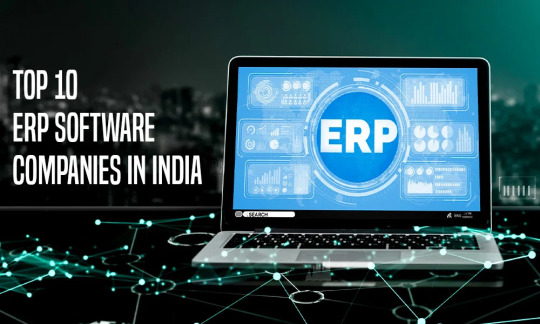
Top 10 ERP Software Companies in India | ERP Software Development Company | JRS Dynamics
Looking for the best ERP software company in India? JRS Dynamics Info Solutions is a leading provider of Microsoft Dynamics 365 ERP solutions, helping businesses streamline operations and drive growth.
Why Choose JRS Dynamics for ERP Solutions?
✅ Expert in Microsoft Dynamics 365 ERP implementation & customization
✅ Tailored ERP solutions for manufacturing, retail, trading & service industries
✅ Seamless integration with existing business tools & processes
✅ Scalable & cloud-based ERP solutions for all business sizes
✅ Global presence - Serving businesses in India, UAE, USA & more
Join the top businesses leveraging ERP for enhanced efficiency, automation, and decision-making with JRS Dynamics Info Solutions.
🔗 Learn more at: www.jrsdynamics.com
Optimize your business with the best ERP solutions in India today!
#erp#digitaltransformation#ERPSoftware#TopERPCompanies#MicrosoftDynamics365#JRS#BusinessSolutions#IndiaERP#erpsolutions#dynamics365#businesssuccess#jrsdynamics#businessgrowth#businessmanagement
1 note
·
View note
Text
Output Management Software Market Current Trends And Challenges Analysis By 2024-2031
Market Overview
The Output Management Software Market is poised for steady growth. The Output Management Software Market Size is valued at USD 10.01 billion in 2025. The Output Management Software Market Growth is projected to reach USD 11.9 billion by 2032. According to Output Management Software Market Forecast, the market is anticipated to exhibit growth at a compound annual growth rate (CAGR) of 5.4% from 2025 to 2032.
Solutions that optimise the creation, distribution, and delivery of business-critical documents across many channels, including print and digital formats, are the main emphasis of the output management software market. Increased digitisation, the growing demand for effective document management, resource and cost optimisation, and strict data security and compliance regulations are the main drivers of its expansion. The market is steadily growing as a result of businesses implementing these solutions to improve workflow automation, interact with enterprise systems, and satisfy the expectations of contemporary operations.
Get Free Sample Copy of This Report – https://www.statsandresearch.com/request-sample/40569-output-management-software-market
Market Dynamics
Software for Output Management The market is in high demand due to the increased adoption of paperless workflows and the trend towards digital transformation. Because of the increasing amount of information and the need for cost reduction, secure document processing, and regulatory compliance, businesses are actively looking for effective solutions to store and deliver essential data. Because cloud-based platforms offer more flexibility and scalability, their popularity is further driving market expansion. Additionally, the overall efficiency of the workflow is increased by the smooth interaction with enterprise systems like CRM and ERP. The necessity for strong document management systems to meet operational and regulatory requirements is driving the market's growth in sectors like healthcare, banking, government, and retail.
Request Customization report-https://www.statsandresearch.com/enquire-before/40569-output-management-software-market
Segments- By Type:
Enterprise Output Management Software
Print Management Software
Document Management Software
Transactional Output Management Software
Others
The output management software market's fastest-growing subsegment at the moment is enterprise output management software, according to market research on the subject. The growing need for companies to increase workflow efficiency, optimise document distribution, and improve overall document management across multiple departments is what is driving this trend. Enterprise output management solutions enable centralised control and automated document delivery, which facilitates integration with other enterprise systems like ERP and CRM as businesses move towards automation and digital transformation.
Key Players
The market is also witnessing significant developments from major players like Adobe Systems, IBM, HP, and Ricoh, focusing on AI, cloud computing, and strategic partnerships to expand their market presence.
Access Full Report –:https://www.statsandresearch.com/report/40569-output-management-software-market/
Contact: Stats and Research Phone: +1 650-646-3808 Email: [email protected] Web: https://www.statsandresearch.com/ Follow Us on: LinkedIN| Twitter| Facebook | Instagram
Top Trending reports:-
Compression Wear and Shapewear
Hiking Accessories
Yoga
0 notes